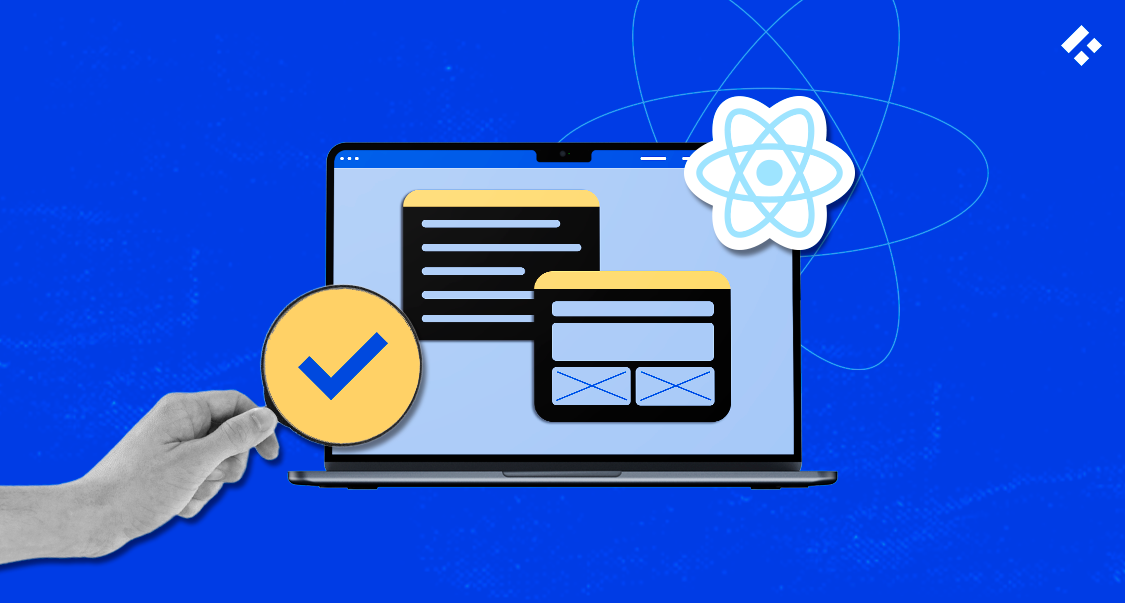Hiring a remote software engineer, and I mean a good one, requires a solid interview process.
Thanks to the internet, you can find software engineers just about anywhere, but finding the right fit for your team can take a bit of work.
Some companies decide to save on time and hire outsourcing companies to do the work. Many of these companies claim to have the top 1% of developers which may or may not be true, depending on how you look at it. Others invest their time in hiring developers on their own.
For those interested in hire software engineers on their own, this article will be very helpful. To learn more, keep reading!
Are you ready to start your development project?
We have the developers you need to take your development project in the right direction.
Companies are proven to grow their business faster with Trio.
How To Find the Best Candidates for Remote Positions in Software Engineering
Great products are built by smart software engineers that work well with each other, so your primary goal should be to hire the smartest people.
Write that down somewhere, and put it somewhere you can see every morning.
The way to do that is to have a solid process from start to finish that will help you determine whether the candidate you are looking at is smart and will be a good cultural fit for your business.
These two qualities are extremely important because you want to work with someone who is passionate and professional but can also deliver solid code on time.
Let’s go over some guidelines you can follow to build this process for yourself.
Define Your Goals
Before you even think of hiring a software engineer, you should determine what type of person you want to work with.
- Would a remote software engineer be the best option for your business?
- Or would you prefer meeting with your engineers in-person every so often?
Highlighting your preferences early on will make you better equipped to hire within your specifications.
By creating a clear and informative job description, you can narrow down the exact qualities and professional experience that you are looking for in a candidate. This will help to screen out the applicants that don’t suit your business.
Plan Your Resource Needs
This is more or less the same as making a budget.
You should start asking yourself questions related to the resources you will need for your project, whether that be the specific tools you’ll have to use or the number of developers you’ll have to hire.
Related reading: Software Developers vs. Software Engineers – What’s the Difference?
Use Appropriate Remote Work Tools
After planning your resources, you should invest some time in figuring out what tools will help you manage your team and the project itself.
You’ll want to settle on a good communication tool like Slack so that you can keep your team connected. Other remote work tools such as Skype, Zoom, and Google Hangouts can be useful for video calls when you need them.
Interview and Screen Candidates
Pay close attention to the communication skills of your candidates.
Interview them over the phone or via video call. Get an overview of their soft skills, like communication, as well as their technical skills.
If a candidate piques your interest during the initial interview, invite them to do a test or challenge to see their software development skills in action.
Even if they don’t give you the ‘right’ answers, you will be able to see how they think, how they make logical connections, if they can think outside of the box, etc.
7 Most Valuable Soft Skills of Exceptional Software Engineers
When interviewing and screening candidates, business managers often put technical skills on a pedestal, over even professional skills.
On some level, this makes sense because a software engineer’s technical skill will define the quality of work that they can deliver. And make no mistake, quality comes above everything in software development.
However, there is more to the development process than just coding and creating useful features for customers. Building great software applications rely heavily on the ability to work and communicate effectively as a team.
During your hiring process, you look for soft skills that complement the technological knowledge of your potential hires. Soft skills should not replace the need for technical skills, but they are necessary for keeping a positive work environment.

1. Creativity
Creativity isn’t limited to artists and poets.
Technical professions have creative elements as well. Believe it or not, finding solutions to complex problems requires a creative thinking process.
Creativity is a source of technological development and innovation. If you take it out of the software development equation, you’d have a software developer that never comes up with any good ideas.
2. Problem-Solving
Problem-solving is more of a cluster of skills, rather than just one skill.
It’s a way of thinking that embraces the complexity of the situation and strives to find the most optimal solution to the problem at hand.
It means finding a solid solution instead of using a quick fix.
For this reason, problem-solving and creativity are tied together. A good problem-solver will take user experience into consideration and aims to provide additional value to the end-user.
3. Communication
Communication is the foundation of collaboration, an essential part of any software development project.
Being an effective communicator includes having the ability to make your ideas clear to your team, as well as having the willingness to listen to your fellow team members.
Misunderstandings can cause great harm to your project. Neither you nor your developers should make assumptions.
Hire a software engineer who will take the time to clarify details and remember that everyone is on the same team. Maintaining active, respectful, and empathetic communication is crucial for successful software development projects.
4. Patience
A short temper isn’t a desirable trait in any industry. It can add unnecessary pressure both for your team and their client(s).
Bugs and complications in the development process are guaranteed, so you’ll want a developer who is able to work through these moments with some type of elegance.
5. Open-Mindedness
To keep an open mind is to be able to receive and consider new information. A close-minded software engineer will only hold your team back and you don’t need that type of energy.
An open mind leads the way to critical thinking and reasoning. Hire software engineers that will be the first to admit that they don’t know everything and are hungry to learn more.
These are also the type of engineers that are open to trying solutions to problems even if it’s something they aren’t familiar with. They’ll have the confidence to roll their sleeves up and dive into the code.
These are the type of rock stars you want to have on your software development team.
6. Ability to Learn
The ability to learn has less to do with being open-minded and more to do with a developer’s actual ability to pick up a new technology and do something useful with it.
Smart developers aren’t limited to one programming language or tech-stack.
They know that most programming languages and technologies follow the same underlying principles and will be able to pick up technology-specific nuances a lot more efficiently.
7. Teamwork
At this point, it should be obvious that the software engineers you hire will need to be able to work on a team.
Software engineers who are team-oriented should be wholeheartedly invested in the team’s success. In an ideal environment, that means every stakeholder is involved – clients, designers, developers, management, and end-users.
Teamwork enables trust between team members, supports healthy debate and the exchange of ideas in order to find an optimal solution, and creates an environment of accountability.
How To Write Job Titles and Descriptions for Software Engineering Jobs
The job listing is where your hiring software engineers process begins and so it’s worth investing time and energy in writing a good job description. It’s also an opportunity to really sell your company to developers looking for work.
Perhaps more importantly, it’s an opportunity for you to describe what you are looking for in a developer.
Let’s break down each part of a job listing in detail to see how we can optimize them to attract the right applicants.
Use a Clear Job Title
It’s best to avoid made-up or non-traditional job titles like“Rockstar Software Engineer” or “Unicorn App Developer”.
These are unrealistic and any software developer worth their salt would ignore these types of titles. Opt for clear job titles such as “Junior iOS Software Engineer”.
Structure Your Job Description
A job description should clearly indicate company expectations for the candidate, work specifications, what you’re offering, and why candidates should join this particular venture.
A detailed and informative job description has a well defined and simple structure. It is easy to read and understand. Bulleted lists and pointed paragraphs may be a good idea in this context.
Write Detailed Task Descriptions
While writing a job description, break responsibilities into short and clear job duties.
For example, if you are advertising for software engineering jobs, don’t use unclear descriptions like, “You will be responsible for software management.”
Describe specific responsibilities. A more constructive alternative might look something like this.
As a software engineer you will be responsible for the following:
- Writing unit tests
- Building and organizing development workflows
- Designing and implementing Spring components
Detailing responsibilities helps candidates evaluate what their work will consist of and if they are truly capable of meeting expectations.
Boast an Attractive Compensation Package
Potential candidates need strong reasons to leave their current job in such a competitive market.
Salaries should meet or surpass averages, depending on the experience of the software engineer. And besides a salary, mention whatever perks come with the position.
Professional development, flexible scheduling, and holiday parties are all examples of what might sound attractive to job applicants. Show candidates why they might pick your company over another.
Sell Your Company
Your job listing is an opportunity to offer potential candidates a glimpse into your organization’s culture. Provide an overview of your company’s values and mission and make it attractive.
These days, it’s not all about the paycheck. Businesses must demonstrate that they have a moral compass. This is not only to get candidates, however.
Even in business, you should understand the importance of humanity.
List Relevant But Practical Job Requirements
Reconcile your need for professional software engineers with rational criteria. Qualified software engineers don’t need a decade of experience to be useful for your next project.
That said, if there are positions you’re hiring for that do require several years of experience, then go for it. Just don’t ask an intern or entry-level software engineer for seven years of experience and a reference from a government official. Be reasonable.
Avoid Discrimination
Diverse workplaces depend on equal opportunity hiring practices. Use non-discriminatory language in your job posting and seek consultation if you’re unsure.
Hiring an Independent Contractor vs. Using an Outsourcing Software Engineering Agency
Sometimes companies seek out software engineers for contract work such as building an MVP, a small/medium-sized project, or to fill vоidѕ created by vacation absences and long-term leaves.
In these cases, positions typically start with a determined scope of work and a timeline.
To illustrate this, you may bring a software engineer on the team for a short period of time to help complete a new website. Upon completion and review, the business relationship may end unless you extend the software engineer’s term for related services.
Deciding whether to hire an independent software engineer or use an outsourcing agency can be difficult. A look at the pros and cons of each may help you make your final decision.
Advantages of Hiring an Outsourcing Software Engineering Agency
Outsourcing software engineers is more cost-effective than hiring professionals in your own organization. By outsourcing your IT needs you’ll also have more time to concentrate on your core business.

- No Overhead
A professional agency takes care of its contractors and specialists, paying their payroll taxes and benefits. They will likely have their own budget and source control as well as their own Quality Assurance and screening procedures and utilize their own IT infrastructure.
Because of this, you’ll worry less about managing resources and additional business expenses. You pay a price, and that’s that.
- Reduced Risk
It’s estimated that fewer than a third of software projects are completed on time and within budget.
A seasoned partner company with a proven track record of completing projects on time and on budget sharply lowers your risk and removes the element of uncertainty.
Related reading: Everything about Software Outsourcing in Latin America
In recent years, IT outsourcing in South
- Improved Processes
Software engineering agencies create software all day, every day. They have already invested time in learning how to accelerate application development.
Partnering with them suggests exclusive access to all the innovative technology and methodologies they have to enhance your application’s development.
Disadvantages of Hiring an Outsourcing Software Engineering Agency
Though outsourcing is financially cost-effective, you may lose the benefit of having a person-to-person relationship with the people you’re working with.

- Less Commitment
There’s no guarantee that an outsourcing agency will be less dedicated or motivated than otherwise. But it’s a fact that outsourced software engineers don’t have a personal interest in your project, at least that’s not what they were hired for.
Unless you do some in-depth research on the agency you use, you’re rolling the dice on the level of commitment you’re paying for.
- Gaps In Communication
As much as you tell the agency about the features you want and the deadlines to meet, there will naturally be some distance from the creative mission of your business.
Hitting every nail on its head will require a bit more communication than a list of objectives.
A good tech partner will meet you more than halfway if they truly care about their relationship with your company.
Advantages of Hiring an Independent Contractor
You can think of independent contractors as freelancers but more loyal by definition. They provide a lot of flexibility and offer some of the same benefits of having full-time staff.

- Staffing Flexibility
If your small buѕiness iѕ like most, it has busy periods followed by slow periods.
Contractors can save you from having to carry staff during slower periods. Trusted contractors also absorb some of the responsibilities that overwhelm your regular staff by effectively distributing the workload.
- Additional Expertise
You may find that you need someone to perform specific tasks or launch projects which fall outside your regular employees’ scope of expertise.
This is where hiring software engineers with independent contractors make more sense than hiring more full-time staff.
Disadvantages of Hiring an Independent Contractor
There are, of course, downsides to hiring an independent contractor as well. Most of these disadvantages have to do with understanding the capacity of an independent contractor in the first place.

- Increased Risk of Audits
Working with contractors increases your risk for government audits. Specifically, they’ll be investigating the working relationship between the contractor and your business.
This underscores the importance of understanding how your local and federal government classifies contractors. A key factor will be how your business controls how things get done. Overall, you must keep your contractor’s freedom in mind.
- High Turnover
Independent contractors come and go. People are drawn to contracting largely because it gives them greater control over who they work with. Additionally, most businesses hire contractors for short-term jobs, which makes it difficult to cultivate loyalty.
In other words, high turnover rates are to be expected. Contractors can be notoriously disloyal, meaning many can leave you in the dust if a higher paying project comes along.

Elevate Your Team with Trio AI Talent
Empower Your Projects with Trio’s Elite Tech Teams
Hire Software Engineers with Trio!
Trio understands your software engineering needs.
We don’t just provide exceptional software engineering professionals to enhance your development potential, we work as a partner on your projects, making sure that the final product meets both the needs of your business and your customers.
Every project is different and there isn’t a one-size-fits-all solution in software engineering.
Our expertise allows us to seamlessly integrate remote software engineering teams into your projects without disrupting business as usual.
But Trio is happy to provide support for your business. If you’re not exactly sure what you need yet, get in touch with us for a consultation and we’ll make a recommendation based on your business needs.







